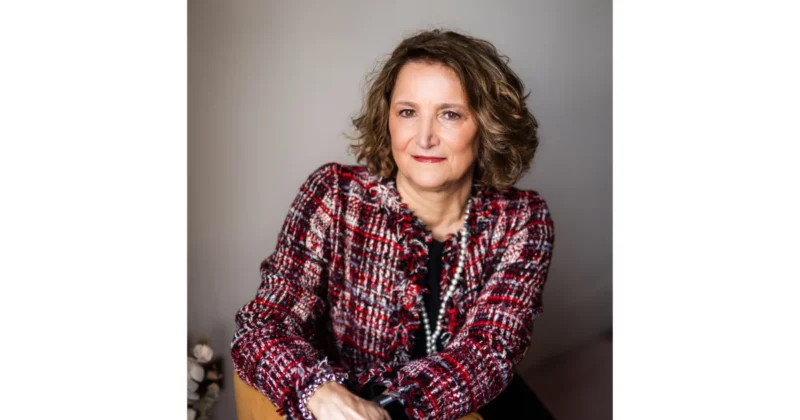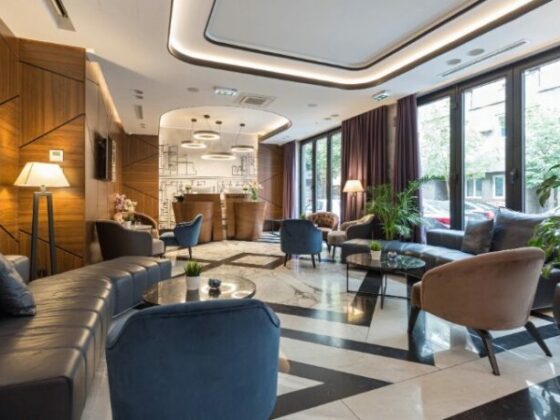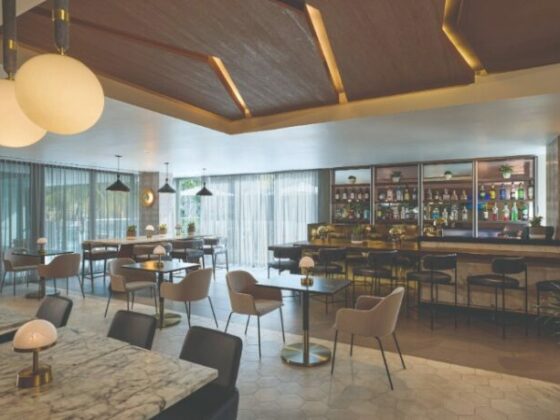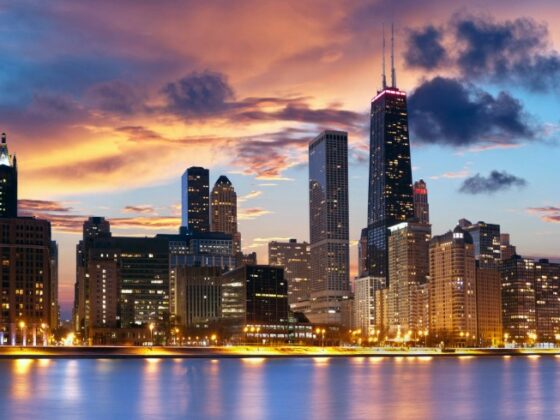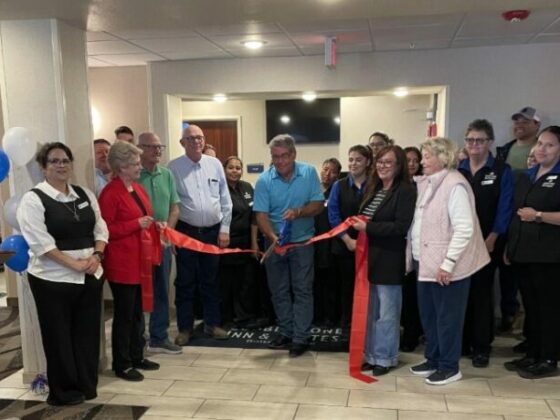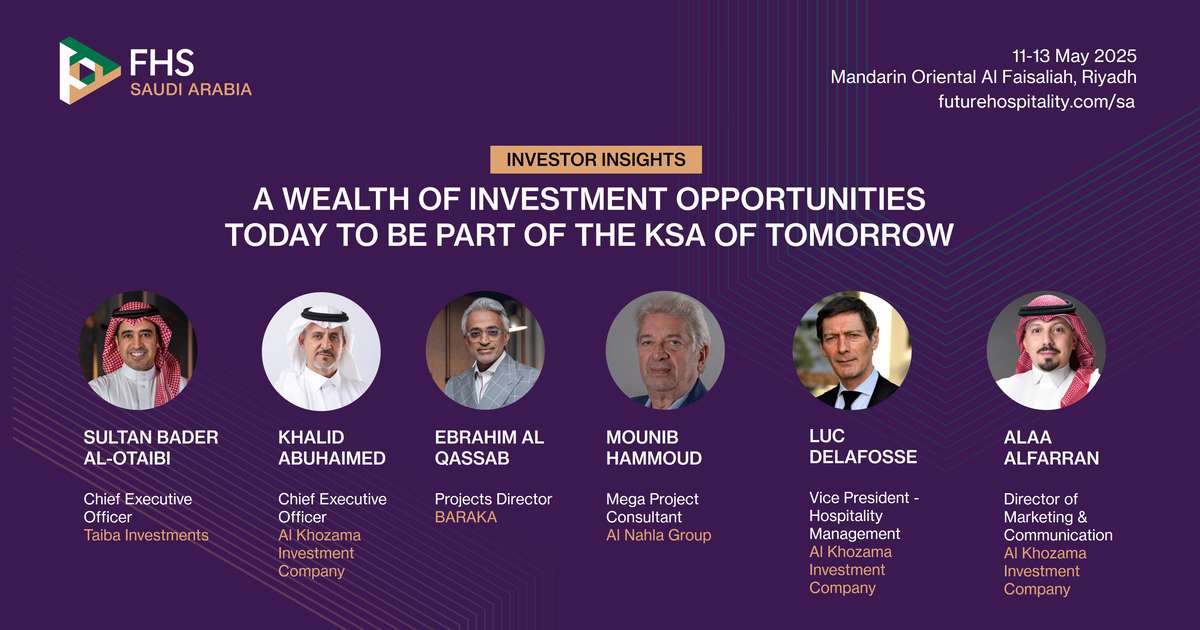
With just under a month to go before the Future Hospitality Summit Saudi Arabia gets under way, investors, developers, government decision makers and regional hospitality leaders are gearing up for three days of networking, learning, debate and deal making in Riyadh.
Nearly 300 investors – almost one in four of all delegates – attended last year’s event, which created more than US$1.1 billion worth of business opportunities and saw 17 deals signed. With KSA’s hospitality and tourism transformation in full swing in line with Vision 2030, the stage is set for a wealth of new partnerships, signings and collaborations at FHS Saudi Arabia 2025.
In the run up to FHS Saudi Arabia, I spoke to leaders from Taiba Investments, Al Khozama Investment Company, Baraka and AlNahla Group for their take on investing in KSA. Read on for insight on where these investors are heading, the importance of hospitality projects to Saudi’s overall real estate offering, how tourism targets can be met and what excites them most about KSA’s future tourism offering.
With unprecedented expansion in real estate, tourism and hospitality in KSA, the opportunities for investment are seemingly endless. What are investors focusing on in terms of location and asset class?
Taiba Investments is looking to solidify its position in the hospitality and real state sectors and aiming for sustainable growth by expanding in key hubs like Riyadh, Makkah, Madinah and Jeddah to elevate KSA’s status as a premier global destination. The company is looking to strategically expand its portfolio with several hotel openings, such as Rixos Obhur Jeddah, Makarem Burj Al Madinah, Crowne Plaza Takhassusi, Sheraton Madinah, Novotel Madinah and Riyadh Marriott Hotel Mursalat.
Meanwhile, Al Khozama Investment Company says its expansion approach is selective and value driven. “We invest in locations that allow to us to deliver distinction, whether through luxury hotels, fine dining or lifestyle assets. The goal is not just to grow, but to elevate the standard of hospitality wherever we operate,” said Khalid AbuHaimed, CEO, Al Khozama Investment Company.
Developing transformative mixed-use destinations that integrate community, culture, and sustainability are at the centre of Baraka’s investment strategy. Ebrahim Al Qassab, Projects Director, said: “Our current focus is in Jeddah, with strategic plans to expand into other major cities across the Kingdom. We are committed to forging strong partnerships and launching new developments that align with Vision 2030, creating spaces that redefine the way people live, work, and connect.”
AlNahla Group is heavily invested in KSA, with diversified investments in real estate, hospitality, banking and finance, automotive, trade, telecommunications. “With a considerable land bank, major real estate developments are underway, including mixed-use and specialised projects, residential, retail, hotels, branded apartments, F&B and offices. The main focus is Jeddah, with projects in Medina and Taif,” said Mounib Hammoud, Mega Project Consultant.
According to the Ministry of Investment Saudi Arabia (MISA), the country’s real estate transformation is creating more than US$25 billion worth of investment opportunities in building and contractor services alone. This makes me wonder, how important are hospitality and tourism projects in relation to KSA’s overall real estate investment offering?
“The country’sreal estate transformation has already positioned the Kingdom as a global leader in innovation, sustainability, and economic diversification within the real estate industry. Hosting global events like EXPO 2030 and the 2034 FIFA World Cup will play an instrumental role in shaping future of the hospitality market in Kingdom over the next 10 years. Meanwhile, developing hospitality and tourism projects is boosting tourism infrastructure, enhancing hospitality offerings, generating demand in other sectors and enhancing the overall quality of life,” said Sultan Bader Al-Otaibi, Chief Executive Officer, Taiba Investments.
Luc Delafosse, Vice President of Hospitality Management at Al Khozama Investment Company, believes hospitality and tourism plays a crucial part in the real estate sector for residential in business and leisure markets. “The hospitality industry offers various housing and holidaying concepts to suit every need, and Al Khozama is developing its offerings to meet the market needs for present and future requirements,” he said.
Saudi Arabia welcomed 30 million foreign tourists last year and is on track to host 70 million international visitors annually by 2030, according to the Ministry of Tourism. I asked our contributors what factors must be taken into account to ensure these goals are achieved—and sustained?
According to Baraka, a strong foundation in infrastructure, accessibility, sustainability and cultural integration is essential in ensuring sustainable tourism growth. Ebrahim Al Qassab commented: “At Baraka, our developments are designed to foster community-driven urban planning, with a focus on sustainable practices that preserve Saudi’s heritage and environment. We believe that integrating authentic cultural experiences with world-class amenities will not only attract visitors but also create long-lasting, impactful destinations that benefit both residents and tourists.”
Mounib Hammoud at AlNahla Group added: “The tourism infrastructure, regulation and communication are key to success and sustainability of the sector. There is a serious need for a diversified supply of hotels and the modernisation of the existing stock.”
All agree that Saudi is ripe for investment, but what is the most exciting area of growth for the country’s tourism and hospitality sector, according to our contributors?
Taiba’s Sultan Bader Al-Otaibi, said: Saudi Arabia’s tourism industry, particularly the hospitality sector, is expected to thrive in the coming years, as part of Saudi Vision 2030. Major projects in the country represent new global destinations for cultural, entertainment, and sports tourism. The country’s religious tourism sector has shown remarkable recovery post-COVID. Taiba Investment has a strategic aim to develop integrated projects, leveraging government efforts to develop the infrastructure for projects in major cities to improve visitor experience and capacity.
Alaa AlFarran, Director of Marketing & Communication at Al Khozama Investment Company, believes that most exciting growth lies in offering experiences that reflect who we are. The shift toward authentic, culturally rooted hospitality is where Saudi has a natural edge. As Saudis, we are known for our generosity. Hospitality is in our DNA. When we design spaces that feel sincere, welcoming, and meaningful, we’re not just hosting visitors—we’re building lasting emotional connections.”
Meanwhile, AlNahla’s Mounib Hammoud says each of the existing and planned tourism destinations offer a different proposition of quality and targets a certain type of tourist, local and international and from different walks of life.
Saudi Arabia’s tourism sector is entering a new era, according to Baraka. “We see tremendous growth potential in eco-tourism, cultural heritage experiences, lifestyle communities, and branded residences. As part of our long-term strategy, we align closely with Vision 2030, ensuring our developments contribute to the Kingdom’s evolving hospitality and tourism landscape. By creating immersive, sustainable, and culturally enriched destinations, we aim to enhance the global appeal of Saudi Arabia as a premier travel and investment hub,” said Ebrahim Al Qassab.
FHS Saudi Arabia takes place 11-13 May at Mandarin Oriental Al Faisaliah, Riyadh. An investor’s pass for FHS Saudi Arabia brings a range of exclusive benefits, including access to the Investors’ Lounge, pre-arranged 1:1 meetings and invitations to closed-door events. Visit the dedicated Investor page on our website for full details.
Anne Bleeker
In2 Consulting
+971 56 603 0886
The Bench


